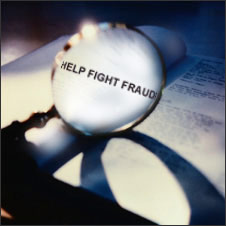Credit Cards & Loans
Seven ways to avoid identify theft

Fraudsters can steal your ID months or years before you realise. Follow our tips to protect yourself.
Consumers are being urged to be more vigilant than ever following a string of ID fraud scams.
According to credit information expert, Equifax, several high profile cases recently have meant it is more important than ever for people to be cautious when sharing data online.
Neil Munroe, external affairs director at Equifax, says: “Many ID fraud victims simply don’t know that they’ve been targeted and they only realise there’s a problem when they try to take out new credit or check their credit report.”
Munroe says that if you are asked for personal details at any time, whether it’s by email or on the phone, it’s vital to know exactly who you are speaking to and that they are from a legitimate organisation before you give them any of your personal details.
“Remember a financial organisation will never ask you for personal details by return email,” he adds.
Although it’s impossible to be protected from every single scam, we have a few tips to help you stay safe:
TIPS TO PROTECT AGAINST PHISHING EMAILS AND ID FRAUD
- Be wary when asked to give out your personal details online or over your mobile phone, if you doubt the request is genuine, contact the company directly. Genuine companies will never ask you to confirm your password or PIN.
- Make sure you have the latest virus protection that ideally updates hourly and you have a Firewall.
- Make sure you log out of all online banking, social networking sites and online shopping accounts rather than just closing the window.
- Never store PINS or passwords on mobiles or smartphones.
- Regularly check credit card and bank statements for unauthorised transactions.
- Regularly check your credit file for any unauthorised applications for credit or new credit accounts.
- Apply for a copy of your credit file to look out for any unauthorised activity.